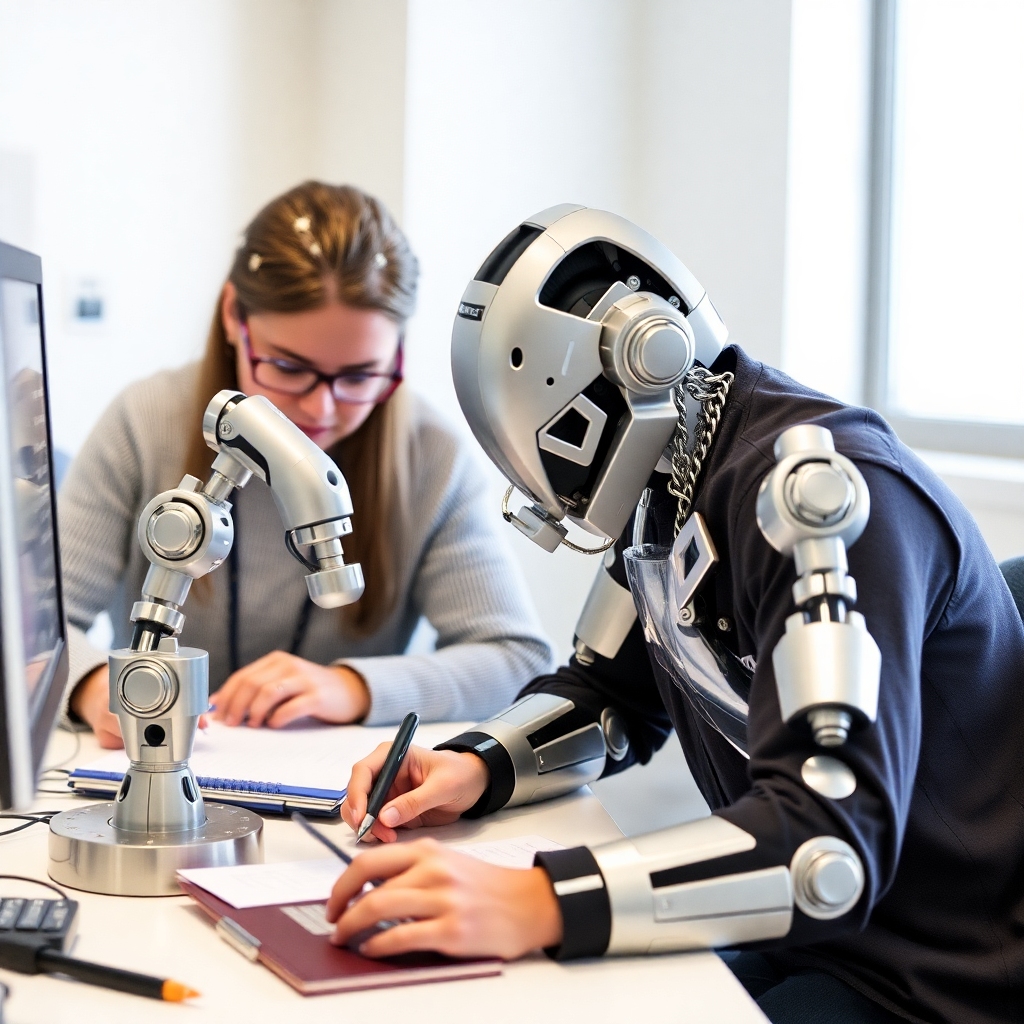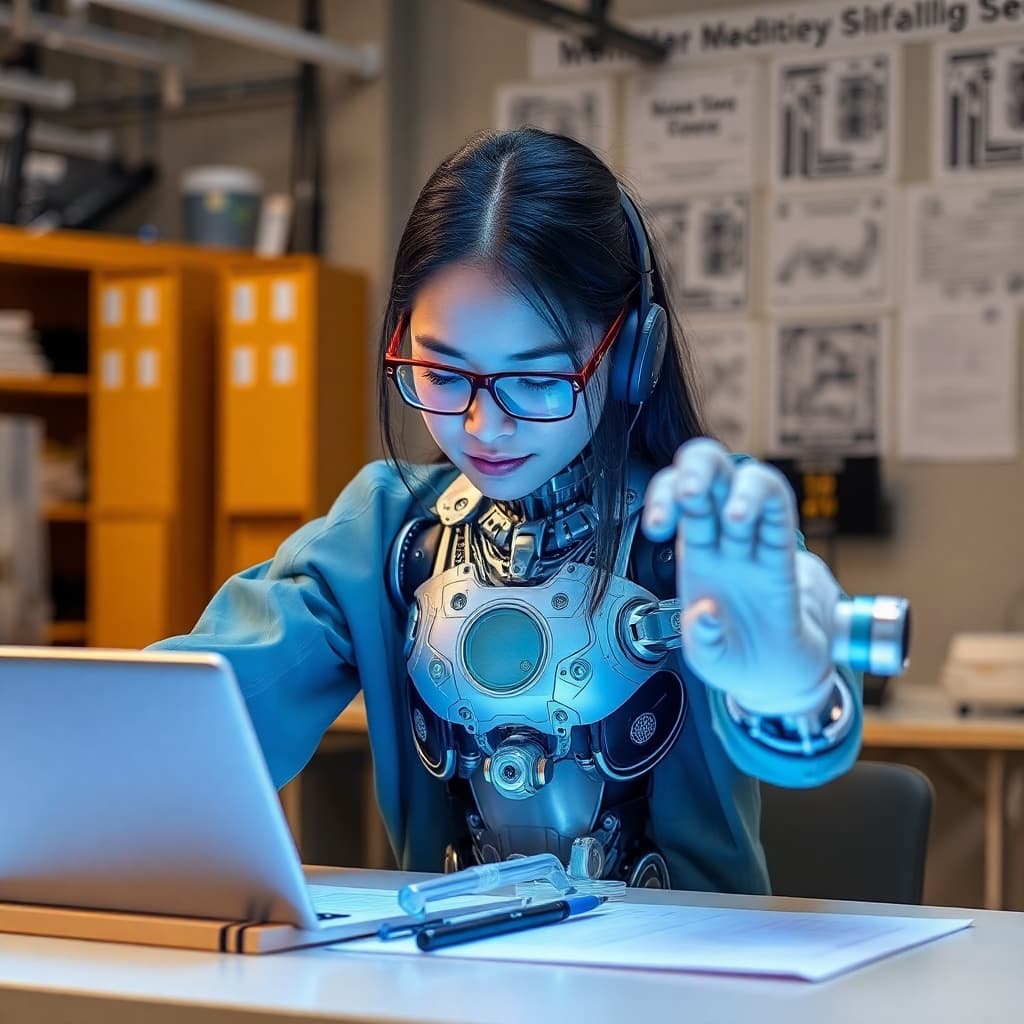AI for Inclusive Education: Empowering All Learners

Education is a fundamental right, yet traditional educational systems often struggle to meet the diverse needs of all learners. Artificial Intelligence (AI) is emerging as a powerful tool in creating more inclusive educational environments, breaking down barriers and providing personalized support for students with various learning differences and needs. This article explores how AI is transforming inclusive education, making learning more accessible, engaging, and effective for all students.
The Importance of Inclusive Education
Inclusive education is based on the principle that all students, regardless of their abilities or backgrounds, should learn together in the same educational setting. It offers numerous benefits:
- Diversity Appreciation: Fostering understanding and respect for individual differences.
- Improved Social Skills: Encouraging interaction between diverse groups of students.
- Higher Academic Standards: Challenging all students to reach their full potential.
- Preparation for Real World: Reflecting the diversity of society in the learning environment.
However, implementing truly inclusive education can be challenging, requiring significant resources and individualized attention. This is where AI comes in, offering innovative solutions to support diverse learners.
AI-Powered Innovations for Inclusive Education
1. Personalized Learning Paths
AI algorithms can create customized learning experiences for students with diverse needs:
- Adaptive Content: Adjusting the difficulty and presentation of material based on individual learning profiles.
- Pacing Optimization: Allowing students to progress at their own speed without feeling left behind or held back.
- Multi-Modal Presentation: Offering content in various formats (text, audio, video) to suit different learning preferences.
2. Assistive Technologies
AI enhances assistive tools for students with disabilities:
- Advanced Text-to-Speech: Providing natural-sounding voice output for students with visual impairments or reading difficulties.
- Intelligent Speech Recognition: Enabling students with motor impairments to control devices and input text through voice commands.
- Real-Time Captioning: Generating accurate captions for video content to support deaf or hard-of-hearing students.
3. Emotional and Behavioral Support
AI systems can provide emotional and behavioral assistance:
- Emotion Recognition: Identifying signs of frustration, anxiety, or disengagement and offering appropriate interventions.
- Behavior Prediction: Anticipating potential behavioral issues and suggesting preventive strategies.
- Virtual Emotional Support Companions: AI-powered chatbots that provide encouragement and coping strategies.
4. Intelligent Tutoring Systems
AI-driven tutors offer personalized support for diverse learners:
- Adaptive Questioning: Adjusting the type and difficulty of questions based on the student's responses and learning style.
- Multi-Lingual Support: Providing instruction and explanations in the student's native language.
- Cognitive Scaffolding: Offering tailored hints and guidance to support problem-solving for students with learning disabilities.
5. Augmented and Virtual Reality for Accessibility
AI-enhanced AR and VR create immersive, accessible learning experiences:
- Virtual Field Trips: Allowing students with physical disabilities to explore and interact with remote locations.
- Social Skills Training: Providing safe, virtual environments for students with autism to practice social interactions.
- Sensory Adaptation: Adjusting visual and auditory elements in virtual environments to accommodate sensory sensitivities.
6. Automated Accessibility Checks
AI streamlines the process of creating accessible educational content:
- Document Accessibility: Automatically checking and suggesting improvements for the accessibility of digital documents.
- Web Accessibility Audits: Ensuring online learning platforms are navigable and usable for all students.
- Alt Text Generation: Automatically creating descriptive text for images to support visually impaired students.
7. Data-Driven Insights for Educators
AI provides valuable insights to help educators support diverse learners:
- Learning Pattern Analysis: Identifying individual learning styles and preferences to inform teaching strategies.
- Progress Monitoring: Tracking and visualizing student progress to quickly identify areas needing additional support.
- Intervention Recommendations: Suggesting personalized interventions based on a student's unique learning profile.
Implementing AI for Inclusive Education
To effectively integrate AI into inclusive education:
- Prioritize Ethical Considerations: Ensure AI systems respect student privacy and avoid perpetuating biases.
- Provide Comprehensive Training: Equip educators with the skills to effectively use AI tools for inclusive education.
- Encourage Collaborative Design: Involve students, parents, and educators in the development and implementation of AI solutions.
- Maintain Human Connection: Use AI to enhance, not replace, human interaction and support in education.
- Ensure Accessibility: Make sure AI tools themselves are accessible to all students, regardless of their abilities.
The Future of AI in Inclusive Education
As AI technology continues to advance, we can anticipate even more innovative applications:
- Brain-Computer Interfaces: Enabling direct communication between the brain and educational devices for students with severe motor impairments.
- Personalized Learning Ecosystems: AI-powered learning environments that automatically adapt to each student's needs and preferences.
- Advanced Language Translation: Real-time translation and cultural context adaptation for immigrant and refugee students.
Ethical Considerations
While embracing AI in inclusive education, it's crucial to address ethical concerns:
- Data Privacy: Protect sensitive information about students' abilities and needs.
- Algorithmic Bias: Regularly audit AI systems to prevent perpetuating or exacerbating educational inequalities.
- Over-Reliance on Technology: Balance AI support with developing students' independent learning skills.
- Holistic Assessment: Ensure AI-driven assessments consider the whole student, not just easily quantifiable metrics.
Conclusion
AI is opening up new frontiers in inclusive education, providing powerful tools to support diverse learners and create truly equitable educational environments. By leveraging AI technologies, we can break down barriers, personalize learning experiences, and empower all students to reach their full potential.
As we continue to explore and refine AI-enhanced inclusive education, we must approach its implementation thoughtfully, always keeping the focus on the individual needs and dignity of each learner. When used wisely, AI can be a powerful ally in creating educational experiences that celebrate diversity, foster understanding, and prepare all students for success in an increasingly complex world.
Embrace the potential of AI in inclusive education, but remember that the heart of inclusion lies in human empathy, understanding, and connection. Let AI be the tool that helps us build a more inclusive, accessible, and empowering educational landscape for all learners, regardless of their abilities or backgrounds.
Table of Contents
- AI for Inclusive Education: Empowering All Learners
- The Importance of Inclusive Education
- AI-Powered Innovations for Inclusive Education
- 1. Personalized Learning Paths
- 2. Assistive Technologies
- 3. Emotional and Behavioral Support
- 4. Intelligent Tutoring Systems
- 5. Augmented and Virtual Reality for Accessibility
- 6. Automated Accessibility Checks
- 7. Data-Driven Insights for Educators
- Implementing AI for Inclusive Education
- The Future of AI in Inclusive Education
- Ethical Considerations
- Conclusion
Related Posts

Discover how AI is transforming educational assessment, moving beyond traditional testing to provide more accurate, comprehensive, and fair evaluations of student learning.

Explore how AI is enhancing collaborative learning experiences, preparing students for the future of work through innovative group projects and team-based problem-solving.

Explore how AI is being used to develop emotional intelligence in students, creating more empathetic, self-aware, and socially skilled learners for the 21st century.

Discover how AI is transforming language education, making it more accessible, personalized, and effective for learners worldwide.

Discover how artificial intelligence is revolutionizing study methods, helping students learn more effectively and retain information longer.

Explore how AI is revolutionizing Science, Technology, Engineering, and Mathematics education, preparing students for the technological challenges of the future.